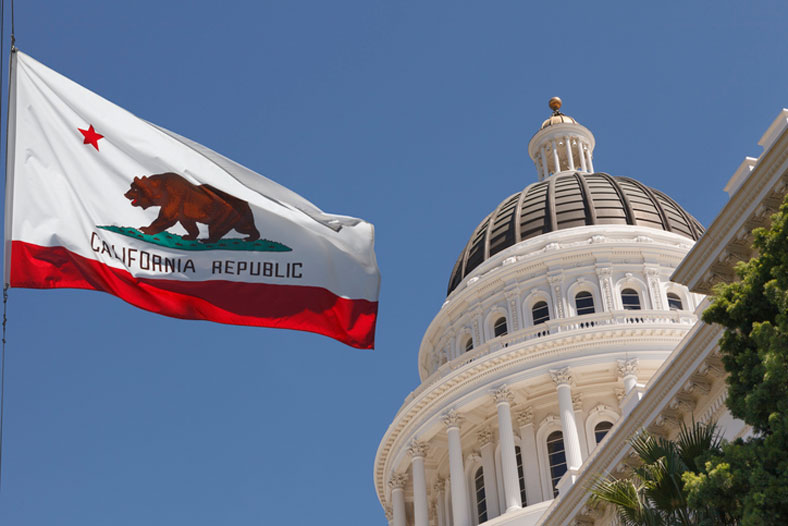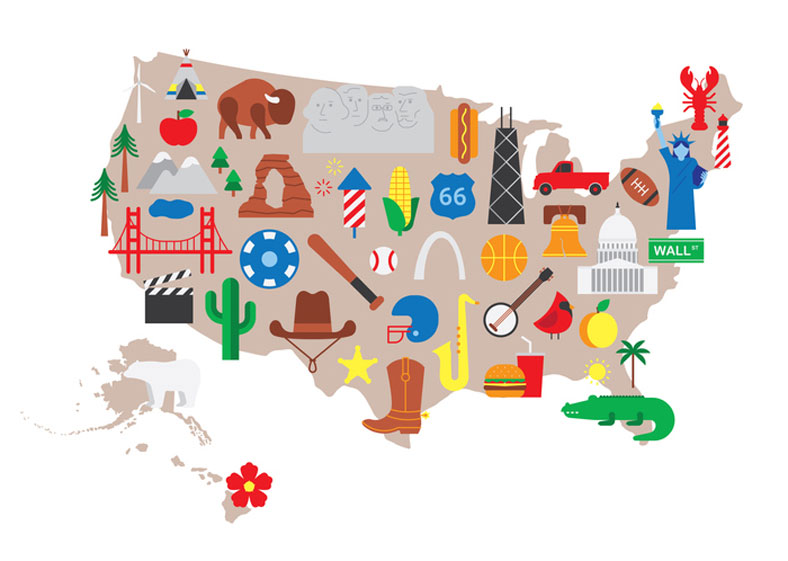Created by CaliforniaSocialWorkEDU Contributing Writer

When a social worker is permitted to practice in a state other than the state in which they are licensed, it is referred to as license reciprocity. Licensure reciprocity is determined by the states, and not all states allow social workers from out of state to practice in their jurisdictions.
Furthermore, state licensing requirements can change, so it’s important to note that a social worker who was previously allowed to practice in a particular state may not be eligible to do so at a later date. Always check with the state licensing board — in California, the Board of Behavioral Science — for the most current qualifications.
Currently, California does not have formal social work license reciprocity agreements with other states. This means that licensed clinical social workers (LCSWs) in California who wish to practice in another state must meet the requirements of the new state. These may include additional education, examinations, or supervised experience hours.
However, because California requires the Association of Social Work Boards (ASWB) exam for obtaining a LCSW license — which is the only designation the state recognizes — and because the ASWB exam is the required exam in the other 49 states, the process for transferring licensure from another state has become more streamlined.
Social Work Practice Mobility in the United States
The Association of Social Work Boards published a news post on September 11, 2023, announcing that it had completed work with the U.S. Department of Defense and the nonprofit Council of State Governments to develop an interstate Social Work Licensing Compact that will offer multistate licenses social workers.

The compact legislation must be adopted by seven states before social workers can practice outside of the state where they hold licensure. So far, only one state — Missouri — has enacted the compact.
The ASWB developed its Model Social Work Practice Act to reflect the best practices in social work regulation and has now created a registry to verify social workers’ licensure information to promote practice mobility among social workers while enhancing public safety.
California’s Stance on the Social Work Interstate Licensing Compact
On June 1, 2023, the executive officer of the California Board of Behavioral Sciences, Steve Sodergren, sent a memo to committee members stating the Board’s stance on the Social Work Interstate Licensing Compact.
In the memo, Sodergren listed the Board’s concerns about the compact and noted that California would not join it immediately but would follow its progress for future consideration.
Board members concerns about the compact include:
- Lack of consumer protection or consistency
- The power of the compact governing agency to set regulations in compact states
- Reliance on a nongovernmental agency’s national database for exchanging information about licensing, complaints, and discipline
- Costs associated with reporting to a database as well as for monitoring and issuing privilege-to-practice licenses.
- Regulatory control by entities in states with different standards of practice
Although the Board of Behavioral Sciences believes in the validity of the interstate compact, it will continue with California’s current licensure endorsement process, “Licensure by Credential,” for the foreseeable future.
California’s ‘Licensure by Credential’ for Out-of-State Licensed Clinical Social Workers
The Board of Behavioral Sciences recognizes that telehealth and remote social work services make practice portability a necessity in many cases. The ability for social workers to practice in multiple states improves continuity of care issues when a client relocates or travels outside of California.
Other benefits of license reciprocity include:
- Improving access to professional social work services
- Supporting relocating military spouses
- Enhancing public safety
In 2017, the Board’s License Portability Committee was formed to address the barriers to out-of-state LCSW applicants, and in 2020, “Licensure by Credential” became effective, allowing 2,500 out-of-state social workers to practice in California to date.

California allows out-of-state licensees to qualify for “License by Credential” if:
- They have held a license as a clinical social worker, marriage and family therapist, or a professional clinical counselor in another jurisdiction
- The license is current and has been active and unrestricted for at least two years immediately before the date of application.
- The license is at the highest level of licensure for independent clinical practice in that jurisdiction
- They have a master’s or doctoral degree from a qualifying accredited or approved institution
- They complete additional coursework in
- California Law & Ethics
- California Cultures and the Social and Psychological Implications of Socioeconomic Position
- Child Abuse Assessment and Reporting in California
- Suicide Risk Assessment and Intervention
- Complete a criminal history background check
- Pass a California Law and Ethics Examination (apply online through (DCA) BreEZe Online Services)
In addition, California has an expedited application process for military veterans and military domestic partners.
Out-of-state applicants that don’t meet California’s requirements for “Licensure by Credential” must apply under Path B, “Licensure via Education and Experience.”
Under Path B, you’ll need to meet the supervised experience requirements, pass the California Law and Ethics exam and the Association of Social Work Boards clinical exam. You can apply for registration as an associate clinical social worker (ASW) so that you can work under supervision while you complete the requirements to become licensed under Path B.

LCSWs from other states who are licensed at the highest level for independent clinical practice must be either:
- Licensed in a state that requires at least 3,000 hours of supervised experience
- or licensed in a state that requires less than 3,000 hours — e.g., New York or Florida — if they make up the hours with up to 1,200 hours of practicing in good standing at the rate of 100 hours per month licensed at the highest level
If you’ve already passed the ASWB clinical exam, your passing score may be accepted as long as it is less than seven years old. Applicants who hold an active license in good standing in another state may submit a passing score regardless of how old it is. To submit your exam scores, download an Official Score Transfer Request form from the ASWB. Your score verification must be in a sealed envelope from the ASWB.
If you want to practice in California and another state, make sure to contact the other state’s licensing board and the California Board of Behavioral Sciences to ensure that you have the most current licensure eligibility requirements and any updates on states that have joined the Social Work Licensing Compact.
Learn more about how you can become a social worker in California.




